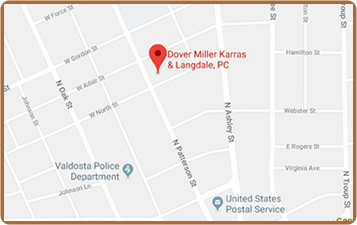What to Expect when your Spouse or You Want a Divorce
- The divorce process usually begins when one party consults an attorney for advice about filing for divorce. A consultation with an attorney is vital whether you want the divorce or your spouse has indicated that he/she wants a divorce. The first thing you should do is get advice from a reputable attorney. Make an appointment for a consultation.
- A divorce actually begins with the filing of a divorce complaint. The person who files is called the plaintiff. The party being sued is called the defendant. The divorce complaint puts the Court and the defendant on notice that the plaintiff wants a divorce and states what the plaintiff is requesting from the marriage.
- If you are the defendant and are served with the complaint for divorce, you must respond promptly, in writing, usually within thirty (30) days or you may lose your right to present your side of the case to the Court. The Court could award your spouse everything he or she requests if you do nothing.
- Along with the divorce complaint, the defendant could be served with a restraining order and notice of a temporary hearing. Sometimes, an emergency order is issued by a judge that requires one party to move from the marital residence immediately or grants emergency custody of children to the party who files the complaint. In any event, if you are served with divorce papers, you should seek immediate advice from a reputable attorney. Do not delay.
- There are many issues involved in a divorce proceeding, not just the separation and ultimate divorce of the parties. If you have children, you will have issues of child custody, visitation and child support, along with property division, debt division, and possibly alimony. If you own real estate or even automobiles jointly, these must be addressed properly. Credit card debt must be allocated between the parties, especially joint accounts. Your credit could be adversely affected by a divorce.
- You and your spouse may reach a settlement agreement without going to Court; however, you must be certain that the document that is drafted is thorough, clearly worded and comprehensive enough to cover all issues between you so that you will avoid unnecessary disputes in the future. You should never sign an agreement, which is a binding contract, without getting advice about your rights.
- You are NOT divorced until a judge signs an order, granting the divorce and you are not “legally separated” until there is a court order so be sure and conduct yourself as if you are still married until your case is finalized.
Custody and Visitation
In Georgia, if the parents cannot agree, a judge has the authority to decide who gets custody of the children, the amount of parenting time that each parent will have with the children, and which parent will have decision-making authority for the children. The judge makes his or her decision based upon what he or she feels is in the children’s best interest, and has a broad range of discretion. Legal and physical custody may be granted to one party or the other or shared between the parties. The same applies to decision making. The judge has a broad range of discretion in these areas.
Custody battles should be avoided whenever possible; however, if the parents cannot agree, we are thoroughly prepared to handle your custody case, whether it is part of your divorce action or a new action brought after the divorce, called a modification, or through a legitimation or paternity action. We will guide you through this emotionally-charged process and are well equipped to handle difficult cases. Our ultimate goal is to ensure that your child’s best interests are the first priority.
